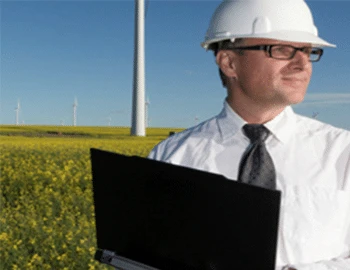The Evolution Of The Environmental Engineering Profession. The Demand is Greater Than Ever

Demand For Environmental Engineers
The Evolution Of The Environmental Engineering Profession. The Demand is Greater Than Ever
The population of the world is growing greater every day and it is no secret that the demand for vital resources is at an all-time high. This demand has created a significant effect on prices for fossil fuels and the resources like water, food and energy. The human impacts of daily living and construction on nature though have taken their toll over the years.
Today, citizens of the world are highly concerned about the long term impacts on the environment and what can be done to correct it. These concerns are one of the main reasons that jobs for environmental engineers are predicted to grow by 15 percent, according to the US bureau of labor statistics (BLS). The figure is higher than the 11 percent growth projected for all occupations and more than the 9 percent increase expected for engineers as a whole.
The environmental engineering profession evolved in the 1960’s from concerns that the public had on the effects of pollution in the water across the country. At that time, Civil Engineers were expected to address these problems by improving water and sanitation systems. As concerns spread to pollution in the air, soil and other parts of the environment a more specialized profession, environmental engineering emerged to deal with these special needs.
Environmental engineers are highly educated; obtaining a Bachelor’s degree and in many instances a Master’s in a specialized discipline. As a professional emerges from school, employers not only look at their educational background, but also their practical experiences; so courses of study typically include internships and cooperative education programs so students know what it is like to work in the real world and pick up real world experience in environmental engineering.
Typically an environmental engineer is highly creative and has the imaginations to come up with solutions to complex problems. They additionally possess excellent interpersonal and problem solving skills working within teams of engineering and scientific professionals. A typical work setting can vary greatly for an environmental engineer, many times working simply in an office environment, on a construction site taking samples, overseeing construction activities, and/or making presentations to the public, business professionals or governmental officials.
The average environmental engineer will earn a salary around $85,000.00 per year with an average staring pay for new graduates around $49,000.00 per year. Seasoned engineers can expect a salary exceeding $122,000.00. The biggest employers are environmental and engineering services firms and the state / federal government. The highest salaries expectations come from oil and gas industries with a mean of $132,000.00 per year, as well as, the mining industry which averages around $102,000.00.
The demand for environmental engineers is great and currently growing greater as the citizens of the world place greater emphasis on their concerns for the environment on policy makers. This is only expected to grow as time go’s on and create greater demand for clean energy, environmental remediation and sustainability initiatives.
Michael DeSafey is a leading executive recruiter for professionals in the construction, engineering and environmental industries. He is currently the President of Webuild Staffing (www.webuildstaffing.com ). To learn more about Michael or to follow his Blog please visit www.michaeldesafey.com
